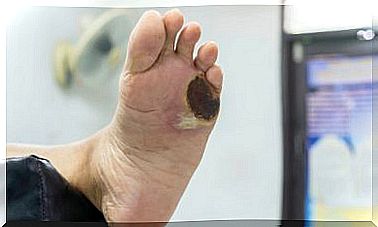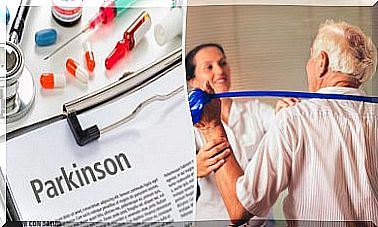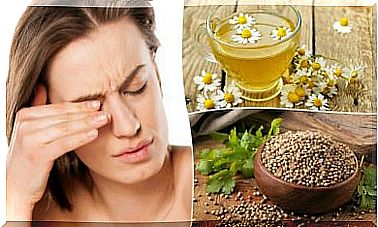How To Prevent And Treat Angina Pectoris
It is often mistaken for a heart attack or a hiatal hernia. That is why it is essential to recognize the symptoms and treat the so-called “angina pectoris” as soon as possible.
Also learn how to prevent it in the following article. Keep reading!
What to know about angina pectoris
If we rely on the medical explanation, this ailment is the “imbalance between the oxygen demand of the myocardium.” In scientific terms it is known as myocardial ischemia and we could say that it occurs when blood flow in the heart stops.
The muscle is altered and some of its properties are reduced. For example, contractibility and elasticity.
During an episode of angina pectoris, certain substances are also released that stimulate the nerve endings, causing the characteristic pain. But be careful, because in many cases the person does not experience discomfort and that makes the diagnosis or the corresponding treatment difficult.

Angina pectoris or myocardial infarction
Many wonder what the difference is between angina pectoris and myocardial infarction. It is important not to confuse the two because they have some similar symptoms.
What differs is the degree of occupation of the coronary vessel (responsible for carrying oxygen to the heart). If it is total, it is a heart attack and, if it is partial, an angina.
Stable or unstable
We can divide this ailment into two large groups: stable and unstable. The first occurs when the reduction in oxygen supply is temporary and the second when the episodes and intensity of pain are increasing.
The symptoms of stable angina are:
- Discomfort or tightness in the chest.
- Feeling short of breath
- Chest discomfort.
- Pain in the sternum when touched.

In the case of unstable angina, the signs are similar to the previous ones but with greater severity and frequency. The pain spreads to other parts of the body (for example, the back or stomach).
Other symptoms may also appear:
- Sickness.
- Cold sweat.
- Vomiting
Tips to avoid angina pectoris
Good habits are essential to avoid an episode of myocardial ischemia. Living a healthy life is very important, and also:
- Eat foods rich in fiber, such as oat bran.
- Eliminate white sugar, saturated fats, refined flours and stimulants (coffee, alcohol) from the diet.
- Cut out processed foods, spicy foods, whole dairy foods, and soft drinks, as well as canned foods and yeast.
- Include legumes, brown rice, cold pressed vegetable oils, vegetables, fruits and oily fish in our diet.
- Control weight and avoid obesity and hypertension.
- Eat a tablespoon of pure honey or a clove of raw garlic a day.

Natural remedies to treat angina pectoris
Among the plants and herbs that help people who have suffered this problem we find:
Artichoke
Its acids reduce the level of cholesterol in the blood, lower blood pressure and prevent atherosclerosis. They also prevent other cardiovascular diseases and lower blood sugar. We will take it in the form of an infusion.
Ingredients
- 2 tablespoons of dried leaves of the plant (10 g)
- 1 liter of water
Preparation
- Boil both for 5 minutes, let it rest for 5 more minutes, filter and drink 3 times a day.
Ginger
The properties of this root are varied, such as, for example, thin the blood, prevent the formation of thrombi and reduce blood pressure. You just have to grate a little in your salads, soups, infusions or cakes. You can also buy powdered ginger.
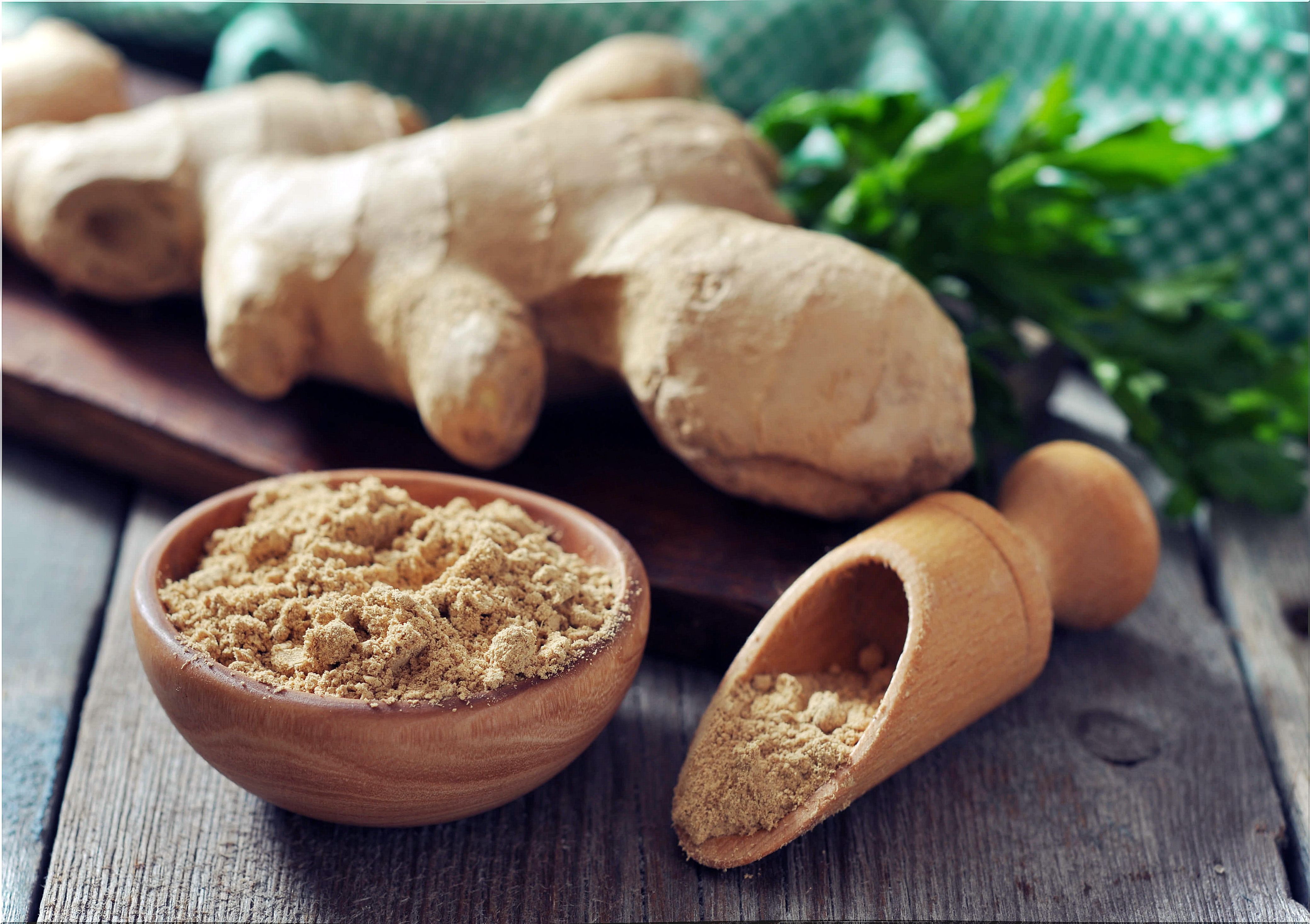
Willow
It has anticoagulant properties. Therefore, it prevents the formation of thrombi and the accumulation of platelets inside the arteries.
In addition to preventing or treating angina pectoris, willow is a good natural remedy to avoid strokes, poor circulation, heart attacks or arteriosclerosis. We can take advantage of its analgesic benefits if we take it in the form of an infusion.
Ingredients
- 1 teaspoon of willow bark (3 g)
- 1 cup of water (250 ml)
Preparation
- Make like any tea and drink it every other day.
Green Tea
Surely you already know that this plant helps you lose weight and prevents fluid retention. But it also lowers cholesterol, tones the heart, thins the blood and protects against myocardial infarction and angina pectoris.
Those responsible for all these benefits are its compounds called histidine, theanine and theobromine. As if that were not enough, it also contains antioxidants such as vitamin C. Drink up to 3 cups per day (hot or cold).
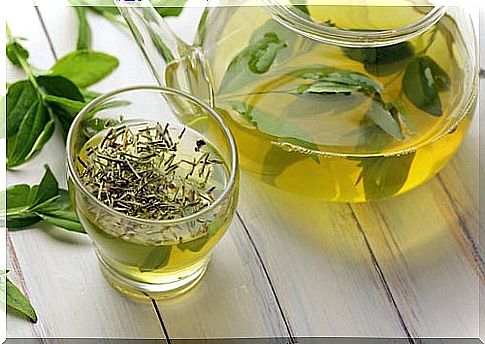
Chicory
This vegetable controls obesity, promotes blood circulation, eliminates toxins and reduces blood pressure. You can consume it in salads or cakes and also in the form of tea.
Ingredients
- 50 grams of chicory root
- 1 liter of water
Preparation
- Boil both ingredients for 12 minutes, let it rest, filter and drink throughout the day. You can sweeten it with honey or stevia (chicory has a very bitter taste).
Horse tail
It is used to lose weight and reduce fluid accumulation. In recent studies it has been indicated that this plant helps people who had angina pectoris not to recur.
Ingredients
- 100 grams of dried horsetail
- 1 liter of water
Preparation
- Put everything to heat and when it breaks the boil let a decoction take place for 5 minutes.
- Turn off the heat, let it rest for 10 minutes, filter and drink during the day.
Lemon
It is an excellent cardiac tonic, improves blood circulation, prevents cholesterol, reduces high blood pressure and prevents angina pectoris. As if that were not enough, it fights arteriosclerosis and stimulates the formation of red blood cells.
Consume lemon (in juice or directly from the fruit) in all the recipes you can. If it is ecological, you can also use the peeling.





